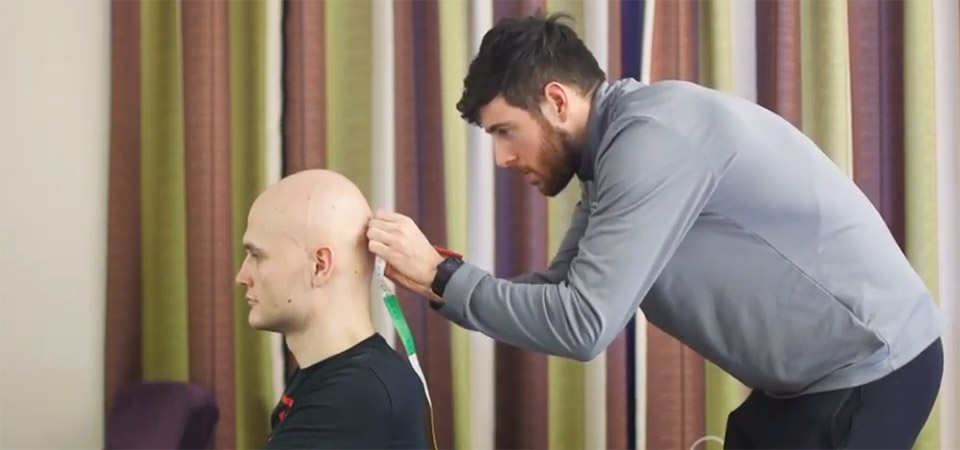One study is designed to better understand the associations between sleep and thermoregulatory parameters which could be used to inform strategies to improve performance and the athlete’s general wellbeing.
Between November 2019 and earlier this month, 8 athletes were all monitored at home where their skin temperature and sleep patterns were measured.
They also spent 24 hours at the Link Hotel, in Loughborough (a partner hotel to the University), where researchers continuously measured core temperature using a ‘thermometer pill’, melatonin and brainwaves.
PhD student Conor Murphy, who is carrying out the study, said:
“Spinal injuries decrease the body’s ability to regulate its own temperature. As a result, overheating during exercise is a big worry. But we want to know whether the issue of disrupted body temperature also impacts on sleep.”
Saliva samples were also taken to measure the sleep hormone, melatonin. And whilst the athletes were asleep, Conor used a technique known as polysomnography to record brainwaves.
It is hoped that the data collected will explain more about the circadian patterns – the body’s natural rhythms that dictate when to sleep and wake – of athletes with spinal cord injuries.
Jack Smith, a wheelchair rugby player for Team GB, who took part in the study, said:
“Finding a solution to poor sleep would be great. If you know you're doing everything you can, physically, to be the best you can be, even if it's just those tiny little margins, you're going to feel better. You're going to feel you've done everything.”
The National Sleep Foundation recommends adults get between seven and nine hours of sleep a night. Conor added:
“Sleep is an essential component of life. It’s a restorative process that includes increased levels of anabolic hormones such as growth hormone and testosterone.”
“Many sportsmen and women already have reduced hours of sleep due to early morning training and rumination at night close to competition time.”
“So, if a para-athlete has additional physiological reasons preventing them from getting a good night’s sleep, their recovery and long-term performance could potentially be hindered.”
Project supervisor, Professor Vicky Tolfrey said:
“Conor has a great supervisory team around him, as this project has input from Dr Iuliana Hartescu (Expert in sleep behaviour). While much of our research at the PHC is underpinned by athletic performance, the findings from this project will have a wider impact for the everyday health and wellbeing of people with spinal cord injuries.”
Acknowledgment Peter Warzynski
